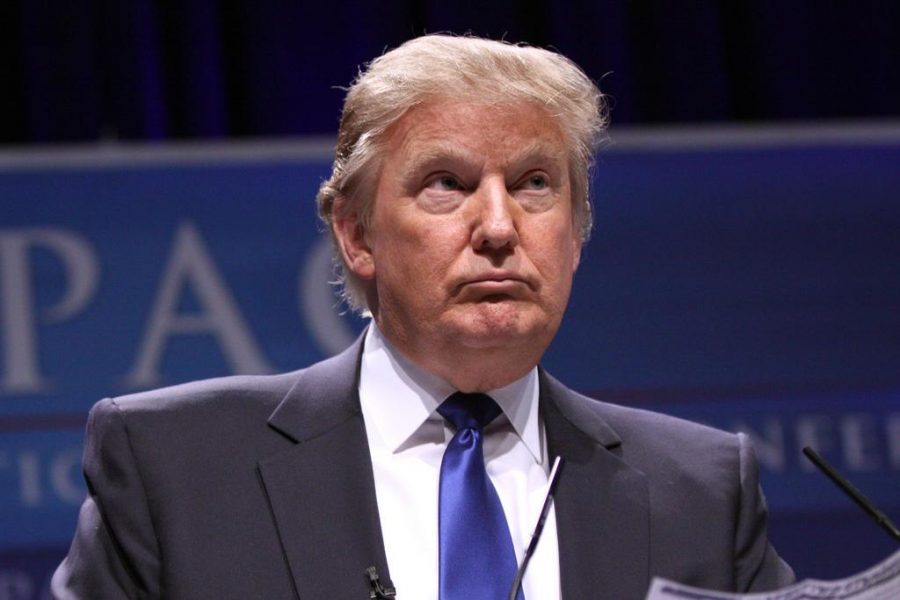It wasn’t too long ago that the British parliament lambasted Donald Trump for his political stances. Yet, the distinct parallels between Trump and post-Brexit Britain are rather stunning. Both arose from the work of brash, blond-haired, stubby men with a penchant for yelling. Despite their respective calls for radical societal change, both groups have managed to avoid political demise, a magnificently confusing phenomenon.
Nearly a year ago, Trump was the dark horse in a sea of Republican nominees; he was an unlikely contender that virtually every political pundit disdained to acknowledge. Since those days, Trump has uniquely positioned himself, building a campaign that only recently began to moderate its message of hatred. This narrative, while a constant source of material for the media, is vital when trying to understand his campaign.
Stemming from his call to ban Muslims from the U.S., brazen commentary on Megyn Kelly and a desire to leave NAFTA, Trump has amassed support from a key bloc of voters — those who are so angry they’re willing to vote for anyone promising huge change. Statistically, this bloc is comprised mostly of older white voters who feel as if the nation has long departed from its set of core values. Yet, it would be difficult to say that these voters truly understand the implications of placing a candidate like Trump in the Oval Office.
In that sense, the Trump campaign is extraordinarily similar to the Brexit movement. On Feb. 20 this year, Britain’s former prime minister David Cameron announced that a referendum regarding the country’s EU membership would be held on June 23. His announcement had an immediate polarizing effect on Britain and served as the catalyst for two distinct movements: the “remain” and “leave” campaigns.
Although the remain group attempted to inform British citizens of the obvious harms of leaving the EU, a palpable anger had spread deeply across the population. Voters backing the Brexit movement were generally older and uneducated, and apt to believe hateful messages. Vexation towards EU leaders, who anonymously made decisions for the U.K. in Belgium, served as the primary fuel for pushing the movement forward. Yet, and rather notably, “Leave voters chose to back Brexit as they saw it ‘offered the best chance for the U.K. to regain control over immigration and its own borders,’” a fact reported by The Telegraph.
Recognizing how the idea of closing borders resonated with voters, the leave campaign began to play heavily on anti-immigration sentiment. The progression of logic was that each year, thousands of immigrants and refugees flood into Britain. They pillage public resources, destroy the nation with terrorism and contribute nothing to society. These immigrants always send the worst members of their populations to Britain as well, without exception. And, while building a wall or leaving the EU would seriously harm trade relations with significant partners, it would be for the betterment of the nation. Is this starting to sound familiar?
This is the intersection in which the Trump and Brexit campaigns converge; they have the same bloc of voters, and find their political footing within the same societal issues. While many clearly see these arguments as ridiculous, Trump is the Republican nominee, and Britain indeed voted to leave the EU on June 23. Thus, something must be working.
However, as history shows, both of these movements will eventually die off. Or will they?
In a recent development, U.K.’s new prime minister, Theresa May, announced that she will invoke Article 50 sometime next year — a measure that will preemptively skip any debate in parliament regarding Brexit. Conversely, in a new CNN poll, Trump has overtaken Hillary Clinton nationally by a margin of two points. Despite her outspending Trump nearly 5-to-1, he has managed to erode the lead that Clinton has held for much of the race. It’s rather impressive that the Trump campaign has been able to gain this much ground since the DNC convention.
Although predicting the success of either movement is impossible, it’s a relatively significant accomplishment that they’ve both come this far. Brexit’s leave campaign began through smearing the leaders of the EU, eventually pressing the importance of mending Britain’s “immigration issues.” Across the Atlantic, Trump amassed his support through a constant stream of media attention, ensuring he said something increasingly radical at each event. Indeed, despite their geographic separation, Brexit and Trump share the same twisted roots. Whether voters in the United States come to their senses this fall, however, is a completely different story.


